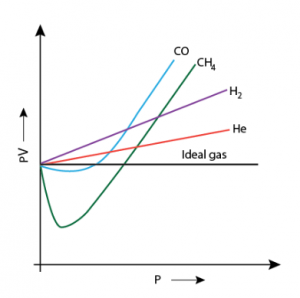From Boyle's Law, in very low pressure ($P \rightarrow 0$), it is a good approximation for real gases to behave as ideal gases. (refer to the graph)
Boyle's Law stated that $ P \propto \frac{1}{V} $
So I am thinking that when $P \rightarrow 0$, $V \rightarrow \infty$, then by $\mathrm{density} = m / V $, supposedly density of ideal gas molecules should be indefinitely small ($\mathrm{density} \rightarrow 0$)
However, it seems density is a measurable value and is involved in calculations of ideal gases. Then may I ask why it is not indefinitely small but a measurable value?

